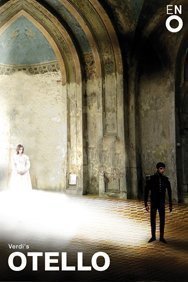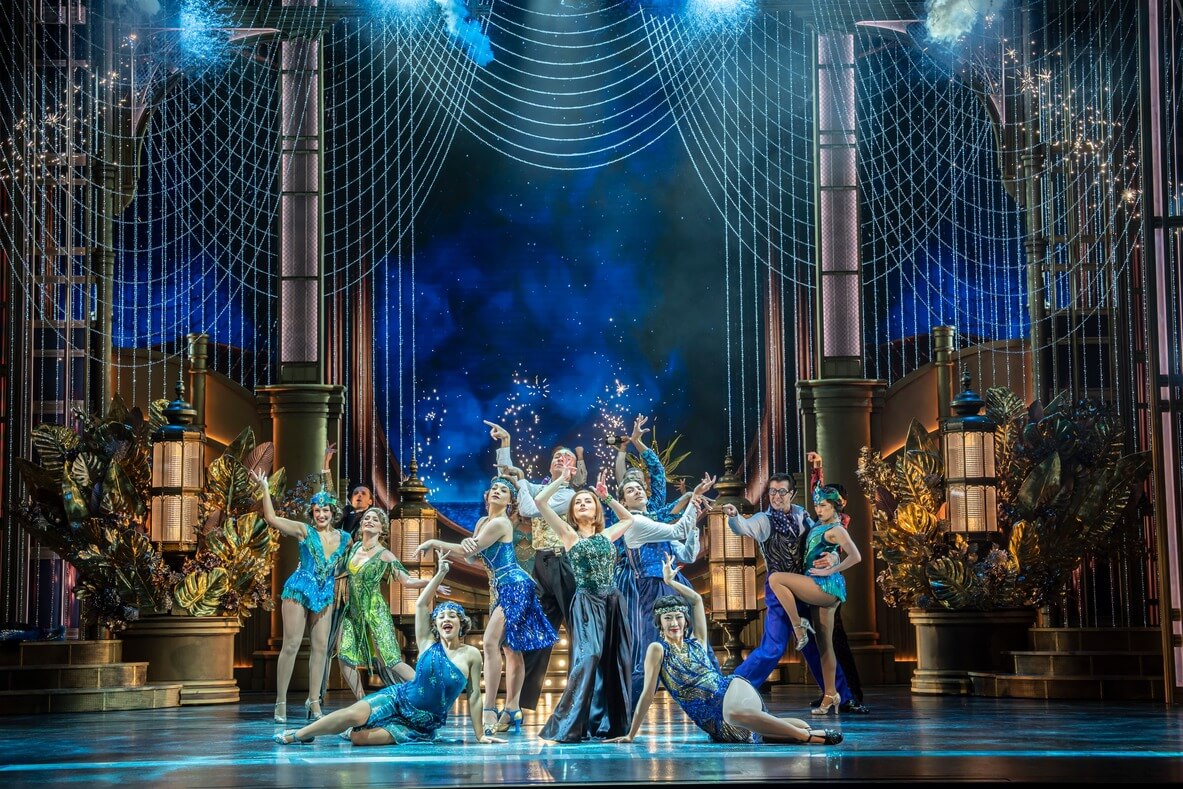It’s based, of course, on Shakespeare’s play Othello; the story of how a malevolent officer, Iago, mentally demolishes his superior, Othello, by sowing the seeds of jealousy and manipulating events so the boss believes that his wife is having an affair. It’s a work of extraordinary psychological detail and intensity. This nineteenth century opera waters down the plot to allow music to take the place of the textual complexity. Personally I can’t agree that the score is any substitute.
The big news here is that the title character, who Shakespeare depicts as a “moor” and insecure about his position in society, is played by a white singer, Stuart Skelton. “Moor” is a rather nebulous term which to Elizabethans probably denoted the character’s North African origins, rather than his being Afro-Caribbean as we usually interpret it these days. This production makes no attempt to make Othello seem a cultural outsider in any way. But then, as the director correctly says in his programme note, the composer portrays him as “just another hysterical Italian tenor”. The trouble is, as everyone’s social equal and without an outsider’s troubled psyche, our hero comes across as a bit of an idiot for falling for all his friend’s tricks.
There was controversy in the opera world recently when a critic unkindly pointed out that a star singer was a little too “robust” for a romantic role. The argument being that if the singing’s great it shouldn’t matter what the cast look like. The trouble is, if, like me, you're relatively new to opera and judge a production purely on its effectiveness as theatre, the sight of heavier people falling in and out of love just doesn’t make the heart race, no matter how good they sound. Director Alden does nothing to help us philistines get over this hurdle and even has Leah Crocetto’s substantial Desdemona, wife of Othello, trampling over a welcoming carpet of flowers!
He’s moved the action to the 1920’s so we can shiver at the standard opera house frisson of fascist uniforms but honestly, it made no impact. It’s all staged on a gloomy, sepulchral, town square set which we’re to believe suddenly becomes an interior when our well upholstered lovers roll around on the floor.
Jonathan Summers is a sinister and glowering presence as Iago. Quite why anyone would believe a word such an obvious predator says is a mystery but here again the broad strokes of opera are intended to make us look beyond the constraints of credibility.
The citizens of Cyprus are directed to either stand lifeless in rows with their hands at their side or make angular arm gestures whilst running about. The luckier ones get to sit down in the court scene, for the rest I fear standing through all the posturing must prove as trying as watching it from the stalls.
I’m reliably informed that the singing is of a sufficient standard and the conductor moves things along at an exhilarating lick. Successful as opera then but this production neither satisfies or convinces as theatre.

 This much anticipated new staging of Verdi’s masterpiece is directed by David Alden, a veteran of many fine productions who enjoyed a particular success recently with his haunting and startling revival of Peter Grimes by Benjamin Britain, at this same address.
This much anticipated new staging of Verdi’s masterpiece is directed by David Alden, a veteran of many fine productions who enjoyed a particular success recently with his haunting and startling revival of Peter Grimes by Benjamin Britain, at this same address.


